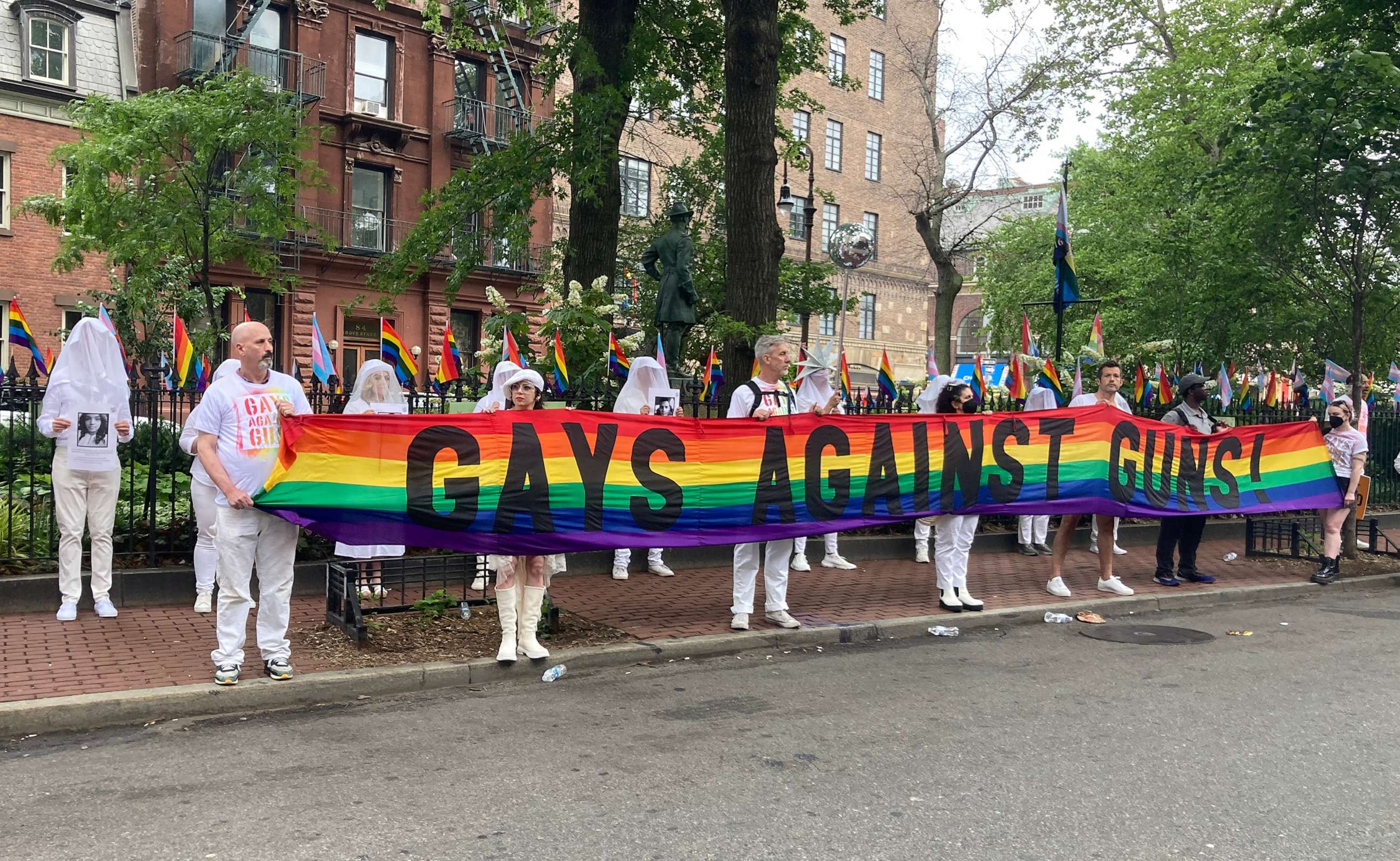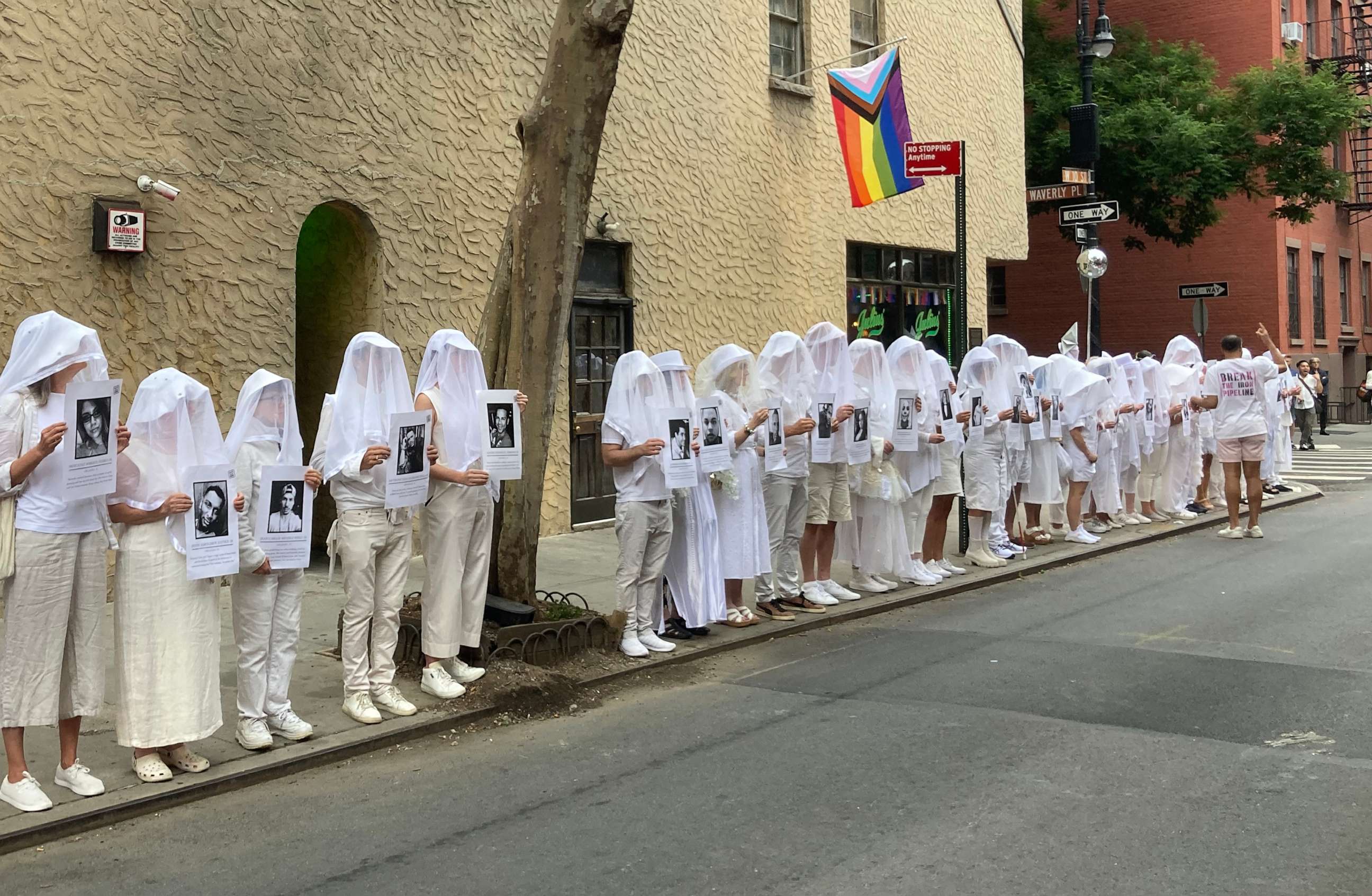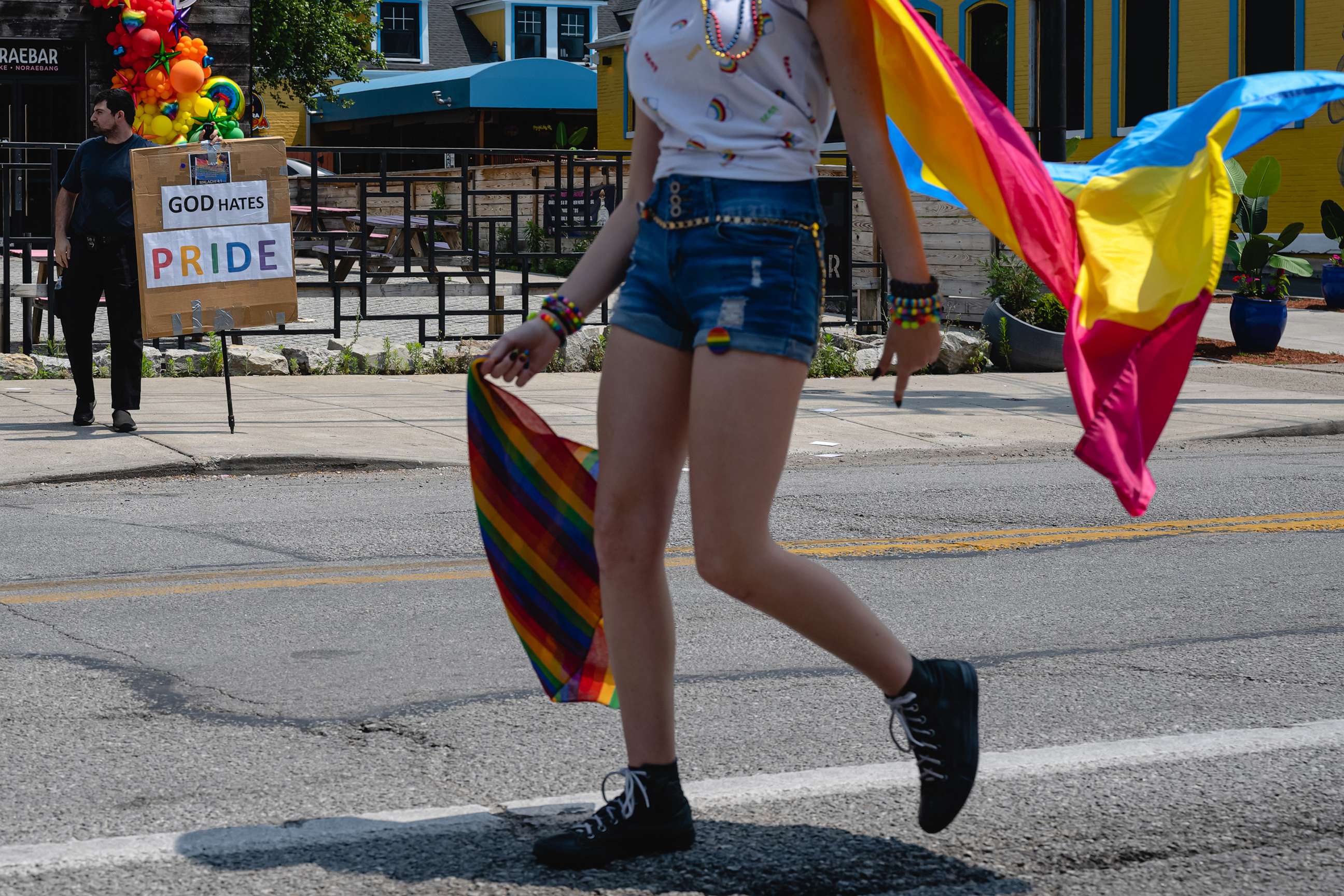'It feels more urgent': LGBTQ community, security experts worry about rising violence amid Pride events
The atmosphere has shaped Pride month events this year.
As Pride month events continue in June, members of the LGBTQ community and security experts are expressing concerns about growing anti-LGBTQ sentiment in the U.S.
"We are in the midst of a threat environment that is more complex and more disturbing than any other that I've experienced in my close to 40 years in law enforcement and homeland security," said John Cohen, a former acting undersecretary for intelligence and counter-terrorism coordinator for the U.S. Department of Homeland Security and an ABC News contributor.
The current threat against the LGBTQ community is worse than when the mass shooting occurred at the Pulse nightclub in Orlando, Florida, seven years ago, Cohen says. The June 2016 massacre killed 49 people and injured 53 more.
The New York Police Department said Friday there are no specific or credible threats to Sunday's Pride march in the city, but an assessment by the NYPD said the event will take place "amid an elevated threat environment worldwide" related to the LGBTQ community.
The department's report, obtained by ABC News, mentions prior acts of mass violence targeting the gay community, including the shooting at Pulse.

Brigid McGinn, an organizer with Gays Against Guns, an activist group committed to ending gun violence, told ABC News at a vigil for Pulse shooting victims in New York City that she fears for the safety of the LGBTQ community amid the heightened rhetoric and the prevalence of guns in the U.S.
"Our kids are not safe. Our trans siblings are not safe walking down the street...and it's all due to interactions with gun violence," McGinn said.
The threats coincide with the increased use of false anti-LGBTQ+ stereotypes by conservative figures that activists have said were historically used to marginalize the community and rile up a political base.
The Institute for Strategic Dialogue, a think tank specializing in research and policy advice on extremism and disinformation, said in a report this month that in the first five months of 2023 there have been more incidents of anti-drag protests, offline and online threats and violence (an average of 19.4 per month) than in the last seven months of 2022 (an average of 15.1 per month).
The report cites a total of 203 incidents between June 2022 and May 2023 that targeted drag events online and offline across the U.S. in the time period reviewed. Of that total number of incidents, 100 (49%) targeted drag queen story hours and 75 (37%) targeted drag shows, the report says.
"The numbers in this report suggest that we run the risk of dangerous backsliding toward hate and violence directed at LGBTQ+ people," said Clara Martiny, digital research analyst of ISD, in a statement on the report.
The atmosphere of increased threat against the LGBTQ community has shaped Pride month events this year, as well as commemorations of the Pulse shooting.

At last week's vigil for Pulse shooting victims held across from the historic Stonewall Inn, where an uprising by members of the LGBTQ community in 1969 followed a police raid, people dressed all in white and held placards for the victims.
"And once we put the veil on we're basically silent in tribute to these people," said John Murphy, who explained he attends the vigil every year.
"Given all of the anti-LGBTQ legislation that's being passed and the quantity of gun violence across the country, it feels more urgent than ever," said David Sabshon, who followed the procession through the neighborhood. "It feels like we are more at risk of something like this happening again."

The ISD report noted that the types of groups behind the anti-drag activity have gone beyond the usual anti-LGBTQ groups and include growing numbers of local extremists, white supremacists, parents' rights activists, members of anti-vaxxer groups, and Christian nationalists.
A DHS report in May said threats of violence against the LGBTQIA+ community are on the rise and intensifying.
"These issues include actions linked to drag-themed events, gender-affirming care, and LGBTQIA+ curricula in schools," DHS said.
In three separate incidents this month, dozens of flags were vandalized at the nearby Stonewall Monument National Park, police said. No arrests have been made in any of the incidents.

Cohen said his assessment on the growing threat to the LGBTQ community is based on three factors. First, there is a much more significant level of online hate directed at LGBTQ people than in the past.
Online hate is also being amplified by elected officials, including in their rhetoric about anti-LGBTQ legislation, which can make extremist groups feel justified in using violence, he said.
According to the Human Rights Campaign, which tracks activity in state legislatures, in 2023, 77 anti-LGBTQ bills have been passed in the U.S. — more than any year on record.
"When you have violent extremists and public figures associating members of the LGBTQ community as being groomers or pedophiles, evil or satanic, then when you couple that with calls for violence directed to that community, it's a dangerous combination," Cohen said.
A larger number of people seem willing to use violence as a way to express personal views or opposition to government policy, according to Cohen.
"So when you take those three factors and put them together, that's the witch's brew fueling violence across America," he said.
Katherine Rose Turbes, a marshal for the vigil at Stonewall, said commemorating the victims of shootings like at Pulse helps to remind the public what's at stake.
"I just want to make sure that people understand the kind of impact and significance of the human beings because as you see...each and every one of these people was a human person whose life got cut short because of homophobic and queer phobic and transphobic violence," Turbes said.
ABC News' Kiara Alfonseca and Aaron Katersky contributed to this report.




